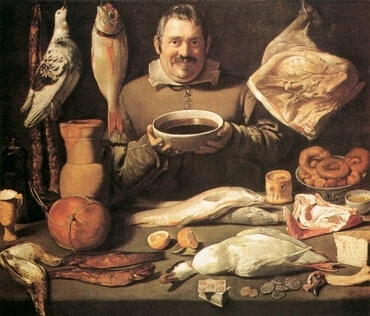1
Y oyó Jetro, sacerdote de Madián, suegro de Moisés, todas las cosas que Dios había hecho con Moisés, y con Israel su pueblo, y cómo el SEÑOR había sacado a Israel de Egipto.
2
Y tomó Jetro, suegro de Moisés a Séfora la mujer de Moisés, después que él la envió,
3
y a sus dos hijos; el uno se llamaba Gersón, porque dijo: Peregrino he sido en tierra ajena;
4
y el otro se llamaba Eliezer, porque dijo : El Dios de mi padre me ayudó, y me libró del cuchillo del Faraón.
5
Y Jetro el suegro de Moisés, con sus hijos y su mujer, llegó a Moisés en el desierto, donde tenía el campamento junto al monte de Dios;
6
y dijo a Moisés: Yo tu suegro Jetro vengo a ti, con tu mujer, y sus dos hijos con ella.
7
Y Moisés salió a recibir a su suegro, y se inclinó, y lo besó; y se preguntaron el uno al otro por la paz, y vinieron a la tienda.
8
Y Moisés contó a su suegro todas las cosas que el SEÑOR había hecho al Faraón y a los egipcios por causa de Israel, y todo el trabajo que habían pasado en el camino, y cómo los había librado el SEÑOR.
9
Y se alegró Jetro de todo el bien que el SEÑOR había hecho a Israel, que lo había librado de mano de los egipcios.
10
Y Jetro dijo: Bendito sea el SEÑOR, que os libró de mano de los egipcios, y de la mano del Faraón, y que libró al pueblo de la mano de los egipcios.
11
Ahora conozco que el SEÑOR es grande más que todos los dioses; porque en lo que se ensoberbecieron prevaleció contra ellos.
12
Y tomó Jetro, el suegro de Moisés, holocaustos y sacrificios para Dios; y vino Aarón y todos los ancianos de Israel a comer pan con el suegro de Moisés delante de Dios.
13
Y aconteció que otro día se sentó Moisés a juzgar al pueblo; y el pueblo estuvo delante de Moisés desde la mañana hasta la tarde.
14
Y viendo el suegro de Moisés todo lo que él hacía con el pueblo, dijo: ¿Qué es esto que haces tú con el pueblo? ¿Por qué te sientas tú solo, y todo el pueblo está delante de ti desde la mañana hasta la tarde?
15
Y Moisés respondió a su suegro: Porque el pueblo viene a mí para consultar a Dios.
16
Cuando tienen negocios, vienen a mí; y yo juzgo entre el uno y el otro, y declaro las ordenanzas de Dios y sus leyes.
17
Entonces el suegro de Moisés le dijo: No haces bien.
18
Desfallecerás del todo, tú, y también este pueblo que está contigo; porque el negocio es demasiado pesado para ti; no podrás hacerlo tú solo.
19
Oye ahora mi voz; yo te aconsejaré, y Dios será contigo. Está tú por el pueblo delante de Dios, y somete tú los negocios a Dios.
20
Y enseña a ellos las ordenanzas y las leyes, y muéstrales el camino por donde anden, y lo que han de hacer.
21
Además considera tú de entre todo el pueblo varones de virtud, temerosos de Dios, varones de verdad, que aborrezcan la avaricia; y pondrás sobre el pueblo príncipes sobre mil, sobre ciento, sobre cincuenta y sobre diez.
22
Los cuales juzgarán al pueblo en todo tiempo; y será que todo negocio grave lo traerán a ti, y ellos juzgarán todo negocio pequeño: alivia así la carga de sobre ti, y la llevarán ellos contigo.
23
Si esto hicieres, y Dios te mandare, tú podrás persistir, y todo este pueblo se irá también en paz a su lugar.
24
Entonces Moisés oyó la voz de su suegro, e hizo todo lo que dijo.
25
Y escogió Moisés varones de virtud de todo Israel, y los puso por cabezas sobre el pueblo, príncipes sobre mil, sobre ciento, sobre cincuenta, y sobre diez.
26
Los cuales juzgaban al pueblo en todo tiempo; el negocio arduo lo traían a Moisés, y ellos juzgaban todo negocio pequeño.







